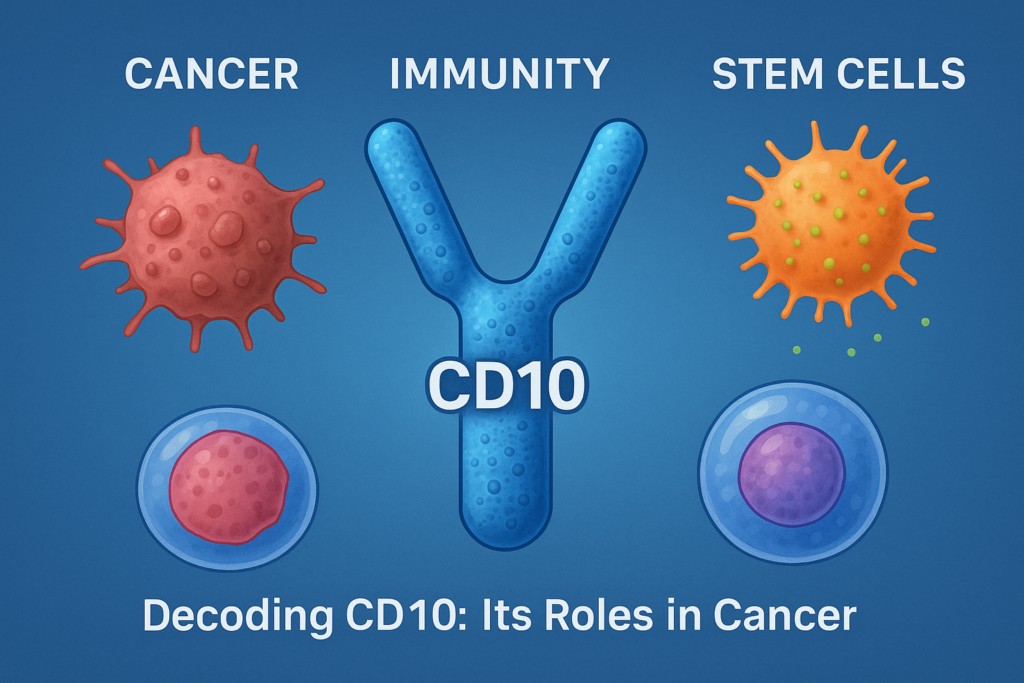Blog Post
Decoding CD10: Its Roles in Cancer, Immunity, and Stem Cell Biology

Decoding CD10: Its Roles in Cancer, Immunity, and Stem Cell Biology
CD10, also known as Neprilysin or Common Acute Lymphoblastic Leukemia Antigen (CALLA), plays critical roles in cancer development, immune regulation, and stem cell biology. Understanding CD10’s functions is essential for researchers aiming to advance diagnostics, treatment strategies, and regenerative medicine.
CD10 in Cancer
CD10 expression is a well-established diagnostic marker in various cancers. In hematologic malignancies like acute lymphoblastic leukemia (ALL) and certain lymphomas, high CD10 levels help classify subtypes and predict prognosis. Additionally, solid tumors such as breast, prostate, and colorectal cancers often exhibit CD10 expression, linking it to tumor progression, invasion, and metastasis.
Key roles of CD10 in cancer include:
- Serving as a biomarker for cancer diagnosis
- Assisting in subclassifying tumor types
- Indicating tumor aggressiveness and potential outcomes
CD10 expression has been widely studied in hematologic malignancies such as acute lymphoblastic leukemia (ALL) and lymphomas.
Learn more about CD10 and cancer in this review on PubMed.
CD10 and the Immune System
Beyond oncology, CD10 is significant in immune function. It is found on early-stage B cells, mature neutrophils, and some subsets of T cells. CD10 regulates bioactive peptides, contributing to immune cell signaling and homeostasis. Its expression helps track developmental stages of lymphocytes and monitor immune-related disorders.
Highlights of CD10 in immunity:
- Expressed on pre-B and mature neutrophils
- Regulates inflammatory signaling molecules
- Monitors lymphocyte development
CD10 in Stem Cell Research
CD10 is also emerging as a marker in stem cell research, particularly for mesenchymal stem cells (MSCs) and early progenitor cells. Researchers use CD10 expression to characterize stem cell populations and understand differentiation pathways. Its presence or absence helps define cell identity in regenerative medicine and tissue engineering studies.
Applications in stem cell biology:
- Identifying MSC populations
- Defining progenitor cell stages
- Supporting tissue engineering and regenerative medicine
Choosing the Right CD10 Antibody for Research
Selecting the appropriate CD10 antibody is crucial for reliable experimental results. Key factors to consider include species reactivity, application suitability (e.g., flow cytometry, immunohistochemistry), and validation data. Whether studying cancer biology, immune responses, or stem cell differentiation, using a high-quality CD10 antibody ensures precision and reproducibility.
For expert guidance on choosing the right antibody, our team at XL Biotec Company Limited is ready to assist you.

